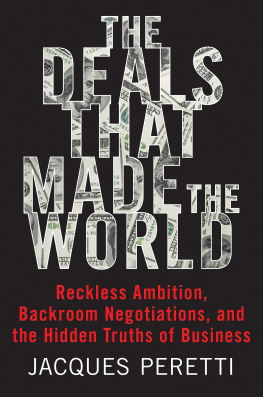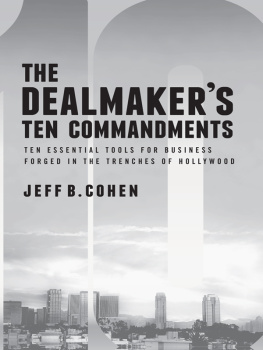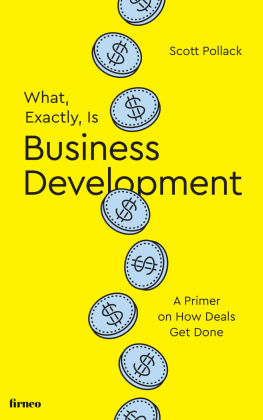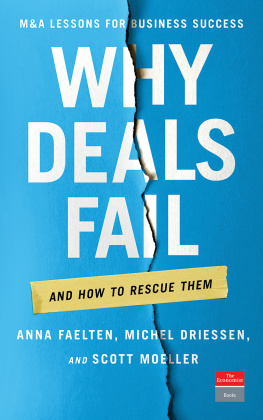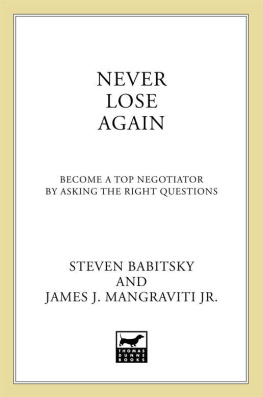Contents
To Esme and Theo
In the early 1990s, I began working as a journalist for the BBC. At that time, there was an assumption, as there still is today, that high politicsthe practice of government in the hushed corridors of Capitol Hill, the Kremlin or Downing Streetis where real power lies. World leaders making decisions that will profoundly shape our lived experiences.
As economists and journalists, we interrogate the consequences of these decisions, analyzing every permutation of outcome in TV news reports and over acres of print. We seek to understand the characters, even the psyches, of the politicians who make these world-historic decisions, in the hopes they will shine further light on their motivations.
We imbue the tiniest actions of politicians with significance, even interpreting their body language at press conferences or global summitsan overly strong handshake or a domineering arm on the shoulderas proof of a nuanced shift in the geopolitical power balance between two superpowers.
This divining is now the day-to-day preoccupation of every reputable news outlet on the planet. But all of this presupposes that politicians are at the true seat of power.
Much is made of a presidents first hundred days in office: the time to capitalize on victory and bring about meaningful legislative change. But one K Street lobbyist told me you could knock a zero off the hundred days and be closer to the truth. The only time America came close to dynamic government during the first hundred days was under Franklin D. Roosevelt. When Donald Trump reached his first one hundred days, the White House pointed to thirteen bills from Congress that had been signed by the new president. But these bills were not to enact new legislation but to roll back laws passed by his predecessors.
The flamboyant flourish of a fountain pen to dismantle old legislation is far easier and quicker than constructing new legislation, which takes time and agreement from multiple stakeholders. Undoing legislation becomes the rhetoric of dynamic government rather than its reality.
We still assume politicians wield power but we have come over time to believe they wield it very badly. Neither is trueneither do they truly wield the power we assume they do nor do they exercise it as badly as we imagine. Instead, the locus of power has shifted. Washingtons Pew Institute has monitored public trust in government for over forty years and found that it has steadily but surely declined, mirroring a real decline in governments political power.
President Trump was elected in 2016 as a public acknowledgment of this decline of political potency and trust in the governmental machine. But his election was also the apotheosis of its failure. Many of those who voted for him did so because he seemed to be the opposite of a politician. He was in business, though he wasnt in truth a self-made businessperson either. He was a deal maker, though it was unclear what real deals he had ever done.
One thing we knew for sure, he was against the swampthe murky world of pleading special interest groups and lobbyists working on behalf of the bte noire of the 2016 election, global corporations, supposedly strong-arming politicians to do their will behind closed doors. In truth, the swampthe miasma of competing interests swirling around every government since time immemorialis simply a fact of government, and the problem with promising to drain it is that it will refill just as quickly as it has been drained.
How does this swamp work?
I experienced it for myself firsthand. Before working for the BBC, I worked as a researcher in Parliament. I saw close up how the political process works, and it was very far from what I had imagined. The majority of politicians didnt appear to do very much. They made speeches, went for lunch, got interviewed on TV (or spent a lot of time trying to be). Westminster politics was memorably described at the time by one commentator as show business for ugly people.
When I moved from Parliament to news reporting, I discovered that that power hadnt simply disappeared, it had been gradually shifting toward industrialists and entrepreneurs over the course of a century and a half. During my first week in news, this shift was revealed in a single moment in the hospitality room. I had produced a report about an oil company alleged to be polluting a large section of the Canadian coastline. There was a furious argument between a representative of the oil company and a member of a prominent environmental pressure group lobbying to stop the oil company. In the studio, they had practically come to blows.
In the hospitality room afterward, they were having a drink. The oil company exec turned to the environmentalist: That was very good, he said. You were excellent. Thank you, the environmentalist replied. You know, the oil exec continued, we could really do with someone like you. Give me a call. They exchanged cards, and three weeks later, the environmentalist was working for the oil company.
They had cut a deal and the bargain was this: the oil rep understood what the environmentalist could do for his company, coming under serious heat, and the environmentalist spotted an opportunity. But what kind of opportunity? To sell out and make money for himself? Or the chance to influence a multinational company from within, to make the kind of changes he might not have been able to action from outside?
This was real politics in operation and it was complicated. There was no easy moral position to take on that conversation between the environmentalist and the oil company exec because it was far from obvious who was outfoxing whom, or what the true motivations or strategic outcome would be for either. What was clear was that there were no politicians present.
Of course, politicians cut deals behind the scenes as well, but the macro-picture for politicians has profoundly altered in the last thirty years. Governments have become increasingly powerless since the collapse of the Bretton Woods agreement on fixed exchange rates in 1971, after which corporations began to wield ever greater transnational power without recourse to cutting a deal with government. Corporations now run the global show not so much through evil Machiavellian design but as a geopolitical inevitability.
This is evident from any cursory look at a map of the world. To a child, the world appears neatly ordered; countries have borders marked by pretty-colored lines. In one respect, the map is correct. Governments govern vertically within the narrow parameters of their borders. But because they operate nationally, they sometimes have narrower geopolitical influence than corporations, which work horizontally across the planet with scant concern for the little colored lines.
This is why the anti-globalist rhetoric of Donald Trump the candidate disappeared when he became president. Because the reality of government means not just accepting the swamp, but accepting globalization as well.
We live in a globalized world but continue to wrongly frame our understanding of that world in a preglobalized way: with politicians and nation-states as the sole units of power.
I suggest shaking the snow globe and seeing things differently.
My years of reporting have shown me that it is not always politicians and world events that fundamentally transform our everyday lives, but often business deals. Not the sort we read about in the business pagesabove-the-line takeovers, acquisitions and mergersbut deals made in secret: high up in boardrooms, on a golf course or over a drink in a bar. Just like the deal I witnessed going on in that hospitality room in my first week in news.
These deals can have ramifications far beyond business. They have changed how we spend and think about money; the way we work; how we conceptualize wealth and risk, tax and inequality. These deals invented and then taught us to embrace the concept of the consumer upgrade. These deals have even altered the shape of our bodies.

